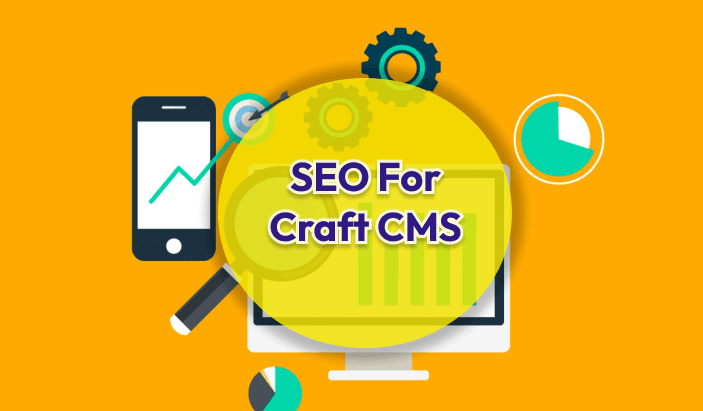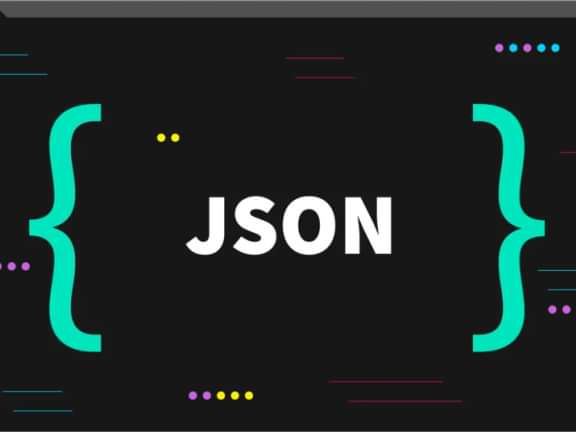Craft CMS SEO: A No-Nonsense Guide
If you can't be found on search engines, you technically don't exist

SEO is important because it helps improve the visibility of your Craft CMS website in search engines, which can lead to an increase in organic traffic and ultimately result in higher conversions and revenue. By optimizing your website for specific keywords and phrases, you can attract qualified leads who are actively searching for the products or services that you offer.
Craft CMS is great for SEO because it allows you to easily customize and optimize various elements of your website, such as titles, descriptions, and headings, to make them more search engine friendly. It also has built-in support for XML sitemaps and Robots.txt files, which can help search engines discover and crawl your site more effectively. Additionally, Craft CMS allows you to easily create and manage redirects, which can help you prevent broken links and improve the user experience on your site.
Make Sure Your Craft CMS Site is Crawlable
Use the Robots.txt file to allow search engines to crawl your site, and create an XML sitemap to help them discover all of the pages on your site.
The Robots.txt file is important for SEO because it allows you to indicate to search engines which pages on your site should be crawled and which should be excluded. By including a Robots.txt file on your site, you can prevent search engines from crawling low-value pages, such as pages that contain duplicate content or that are under construction.
An XML sitemap is important for SEO because it provides a list of all the pages on your site to search engines, along with additional information about each page, such as its relevance and the date it was last updated. This helps search engines discover and crawl your site more efficiently, which can improve the visibility of your site in search results.
Use Relevant, Keyword-rich Titles and Descriptions
Each page on your site should have a unique, descriptive title tag and meta description that includes the keywords you want the page to rank for.
Keywords and descriptions are important for SEO because they help search engines understand the content of your website and determine how relevant it is to a user's search query. Including relevant keywords in your titles and descriptions can also help improve the click-through rate (CTR) of your website in search results, as they give users a better idea of what they can expect to find on your website.
As an example, a good title for a blog about gardening might be "10 Expert Tips for a Thriving Vegetable Garden" and a good description could be "Learn from top horticulturalists and transform your backyard into a productive vegetable garden. Get practical tips for soil preparation, seed selection, and pest control." This title and description use relevant keywords (gardening, vegetable garden, horticulturalists) and provide a clear and concise summary of the content that users can expect to find on the blog.
Use Headings and Subheadings
Use H1, H2, and H3 tags to organize your content and make it easier for search engines to understand the structure of your pages.
In terms of Craft CMS SEO, using headings and subheadings can help you optimize your content for specific keywords and phrases, as search engines give more weight to words and phrases that appear in headings and subheadings. Using headings and subheadings also helps you break up your content into shorter, more manageable sections, which can improve the user experience on your site.
Overall, using headings and subheadings is a simple but effective way to improve the SEO of your content and make it more appealing to both search engines and users.
Alt Tags in Craft CMS
Alt tags provide a text alternative for images, which is helpful for users who are visually impaired and for search engines that can't see images.
Alt tags also provide context for images, which can help search engines understand the content of a page. For example, if an image on a page is a photo of a red car, the alt tag might be "red car." This helps search engines understand that the page is relevant for searches related to red cars.
Alt tags can also help improve the relevance of a page for a specific keyword or phrase. For example, if you want a page to rank for the keyword "red shoes," including the phrase "red shoes" in the alt tags of any images on the page can help signal to search engines that the page is relevant for that keyword.
Overall, alt tags are an important factor in SEO because they help improve the accessibility, context, and relevance of a page for both users and search engines.
Use Internal and External Links
Linking to other pages on your site, as well as to high-quality external sources, can help improve the authority and credibility of your site.
Internal links, which are links that point to other pages within your own website, can help search engines understand the structure and hierarchy of your site, as well as the relationships between different pages. Internal links can also help users navigate your site and discover new content.
External links, which are links that point to other websites, can help improve the credibility and authority of your site by showing that you are linking to high-quality, relevant sources. When you link to external sources, you are essentially saying that you trust and value the content of those sources, which can help improve the reputation of your own site.
Optimize Loading Speed
Site speed is important for SEO because it affects the user experience on your website, and search engines consider the user experience when ranking websites. If your website takes a long time to load, users may become frustrated and leave before the page has a chance to fully load. This can increase your bounce rate, which is the percentage of users who leave your site after viewing only one page. A high bounce rate can hurt your search rankings because it indicates to search engines that users are not finding your site useful or relevant. On the other hand, a fast-loading site can improve the user experience and lead to a lower bounce rate, which can in turn improve your search rankings.
If you are interested in how we at Brilliance approach site speed for Craft CMS you should read our blog post about How to Make Craft CMS Faster.
Structured Markup (JSON-LD)
JSON-LD (JavaScript Object Notation for Linked Data) is a format for expressing structured data in a way that is easy for both humans and machines to understand. It uses a specific syntax, which is a subset of the JSON (JavaScript Object Notation) format, to represent linked data in a way that can be easily embedded in web pages.
When it comes to SEO for businesses, JSON-LD can be used to mark up information about the business, such as its name, address, phone number, and hours of operation, as well as information about products, such as their names, descriptions, images, and prices. This markup can help search engines understand the structure and content of the website, which can in turn help the website rank higher in search results.
Incorporating JSON-LD into a website is a simple process. The structured data is added as a script in the head of the webpage, and it must be a valid JSON-LD syntax. The script uses the @context and @type properties to specify the type of structured data that is being represented.
Here's an example of JSON-LD markup that can be used to represent a business:
{
"@context": "https://schema.org",
"@type": "LocalBusiness",
"name": "Crafts R Us",
"address": {
"@type": "PostalAddress",
"streetAddress": "123 Main St",
"addressLocality": "Anytown",
"addressRegion": "TX",
"postalCode": "12345",
"addressCountry": "US"
},
"telephone": "+1 555 555 1234",
"openingHoursSpecification": [
{
"@type": "OpeningHoursSpecification",
"dayOfWeek": [
"Monday",
"Tuesday",
"Wednesday",
"Thursday",
"Friday"
],
"opens": "09:00",
"closes": "17:00"
},
{
"@type": "OpeningHoursSpecification",
"dayOfWeek": "Saturday",
"opens": "09:00",
"closes": "13:00"
}
],
"image": "https://example.com/craftsrus.jpg",
"priceRange": "$$"
}This JSON-LD block will provide the structured data for Search Engine like Google to understand the business, its location, opening hours, telephone, and a image. It is important to mention that you should test your markup on Google's structured data testing tool to see if it is correct, and to see if there's any error or warning.
Keep in mind that JSON-LD is just one of the ways you can use structured data to improve your website's SEO. Other formats, such as Microdata and RDFa, can also be used, but JSON-LD is the recommended format by Google.
Final Boost: Turn Your Craft CMS Site into a Search Engine Magnet
Remember...Mastering SEO for Craft CMS isn’t about chasing trends or gaming algorithms, it’s about building a rock-solid foundation and optimizing smart.
From fine-tuning your meta titles and making your content easy to crawl, to structuring pages with clarity and leveraging image alt text, every small detail adds up to a major visibility boost.
Whether it's customizing your meta fields, generating clean sitemaps, or optimizing internal links, Craft CMS gives you the flexibility to implement these strategies with precision.
The best part? These aren’t hacks. They’re timeless best practices that search engines love.
If you start applying these Craft CMS seo tactics now, you’ll not only climb the rankings, but you’ll attract the right audience, boost engagement, and turn traffic into real business growth.

Brilliance is a 5-star rated and certified Semrush Agency partner that specializes in web development, SEO and Digital Marketing. We have bright and talented people dating back to the 90's when the internet first became a thing. No project is too complex. We love to tackle new challenges and equally we love making our clients happy and want to believe that in one way or another we have increased the quality of their business and their life.
Continue reading.
The Element API plugin is a very powerful tool that you can use for quickly exposing your data structures to an external source.
Read moreA brief introduction to consensus mechanisms and why proof of stake is the right move for Ethereum.
Read moreLet's chat about your project
Portland, OR 97215



